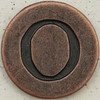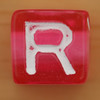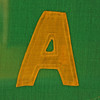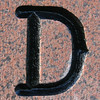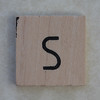Why should I care about Web 2.0? I think part of my job is to stay current with library trends - not just the materials and electronic sources, but how they're being encountered, too. I guess the argument could be made that Library 2.0 is just a different kind of delivery system for information.
My sense is that Web/Library 2.0 is here to stay. It would be hard to even imagine a world without google or myspace or IM or blogs. I don't really see our culture 'rewinding' and getting rid of these tools. It's my job to understand them and be comfortable using them myself, so I can help our patrons. Besides, it's kind of fun to be a part of the evolution of library services.
On a more personal note, I love to try new things, face new challenges, and learn something new every day. To me, the kiss of death would be to come to work and do the same thing, day after day after day. That just sounds like a slow, painful, death of the spirit to me. '23 Things' looks like a great way to have some structure about learning these skills. But it's also nice to have the freedom to learn in my own time, in my own space, and at my own pace.
I've been 'stealing' time here and there to move through the Things. I expect that some days will allow more time than others. But when something's interesting, it's a lot easier to
make the time to spend with it. This definitely has that kind of interest level for me.
I think one of the biggest challenges to 2.0 in the library world is giving up control. We're so used to being tied to authority in our catalogs, that it's hard to look outside that box. But I think the only way to stay current in an ever-changing environment, is to be more flexible and faster in making decisions. Otherwise, our service will always be lagging behind what our users really want. I think that requires giving up some control, as hard as that is.
One of the 'Things' I'm looking forward to, is Instant Messaging. It seems like a good tool, but I haven't been able to really try it because I don't know anybody who uses it a lot. (I know, that makes me sound like a loser, but I
do have friends. Really.) Anyway, there are staff in other buildings in our library system, who are also working on 'The 23 Things', so I think I'll be able to IM with them.
And that's the real strength of Library 2.0. It's all about collaboration, whether it's between us and our patrons or among our colleagues. Librarians are already REALLY good at collaboration - whether it's sharing cataloging (WorldCat), materials (inter-library loans), or just helping out a colleague at the desk. That's pretty much our mindset - sharing information, equally, with everybody.
Web/Library 2.0 is right up our alley!
 Some reactions: Reddit appealed to me. (He's very cute). The source seemed more obvious to me, right from the headline page. That's important to me, in terms of the quality of information, and the possible bias built into the article. Digg was kind of overwhelming for me, visually. It took me a long time to even realize the source was noted on the main page there, too. Newsvine was very slow in loading and I didn't have a lot of patience for that. But it appeared it might have more informative articles. Mixx - at first glance I could find no sources listed on the main page. It seemed very tabloid-y to me. In looking at StumbleUpon, the thing that struck me most was that I could spend a lot of time there and maybe come across some cool stuff, but mostly I would just be looking around. It seemed kind of pointless to me, but maybe I just didn't spend enough time with it.
Some reactions: Reddit appealed to me. (He's very cute). The source seemed more obvious to me, right from the headline page. That's important to me, in terms of the quality of information, and the possible bias built into the article. Digg was kind of overwhelming for me, visually. It took me a long time to even realize the source was noted on the main page there, too. Newsvine was very slow in loading and I didn't have a lot of patience for that. But it appeared it might have more informative articles. Mixx - at first glance I could find no sources listed on the main page. It seemed very tabloid-y to me. In looking at StumbleUpon, the thing that struck me most was that I could spend a lot of time there and maybe come across some cool stuff, but mostly I would just be looking around. It seemed kind of pointless to me, but maybe I just didn't spend enough time with it.








